


From Kitchen To Plate
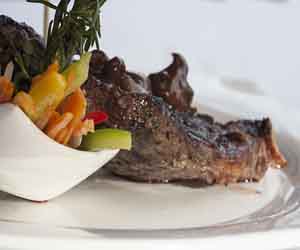
Cooking is not merely a necessity; it's an art, a creative endeavor that weaves flavors, textures, and aromas into a tapestry of culinary delight. Behind every memorable dish lies a source of inspiration, a driving force that ignites the passion for cooking. In this article, we explore the role of cooking inspiration and how it elevates the experience of preparing and enjoying food.
A Journey Of Senses: Cooking inspiration often begins with the senses. It might be the vibrant colors of fresh produce at a farmers' market, the tantalizing aroma of sizzling garlic and onions in a bustling kitchen, or the rich, comforting taste of a childhood favorite. The five senses, combined, offer a symphony of stimuli that can spark creativity in the kitchen.
Cultural Exploration: One of the most potent sources of cooking inspiration is cultural exploration. Exploring the culinary traditions of different cultures opens doors to a world of flavors and techniques. From Italian pasta to Indian curries, each culture has its own unique approach to cooking that can inspire home cooks to experiment with new ingredients and flavors.
Nurturing Ingredients: The choice of ingredients can be a powerful source of inspiration. Fresh, seasonal, and locally sourced ingredients often take center stage in the creative process. The urge to transform these ingredients into a delicious meal can drive home cooks to experiment with innovative recipes.
Cookbooks And Celebrity Chefs: Cookbooks and celebrity chefs have an enduring influence on cooking inspiration. The well-curated pages of a cookbook or the charismatic presentations of celebrity chefs on television can spark ideas and encourage home cooks to try new recipes and techniques. The artful fusion of flavors and methods can be especially inspiring.
Personal History And Memories: Many of us find inspiration in our personal history and memories. Grandma's apple pie, dad's famous barbecue sauce, or the scent of holiday cookies can transport us back in time, rekindling memories and emotions that inspire us to recreate those beloved dishes.
Creativity As A Driving Force: Cooking inspiration is a powerful force that fuels creativity in the kitchen. It encourages home cooks to think outside the box, experiment with ingredients, and create their unique signature dishes. This experimentation often leads to culinary masterpieces that are deeply satisfying and reflective of the cook's personal style.
A Stress Reliever: Cooking can be a therapeutic release. The act of preparing a meal, focusing on each step of the process, and savoring the results can be a source of comfort and relaxation. Many people find inspiration in cooking as a means of relieving stress and finding solace in their kitchens.
Cooking inspiration is the invisible ingredient that elevates meals from mere sustenance to delightful experiences. Whether it's drawn from culture, senses, ingredients, memories, or creativity, inspiration is what gives life to each dish. It infuses passion into the act of cooking, turning it into an art form, a cultural exploration, and a deeply personal journey. So, let your senses guide you, and embrace the culinary adventures that await when you find inspiration in the world of food.
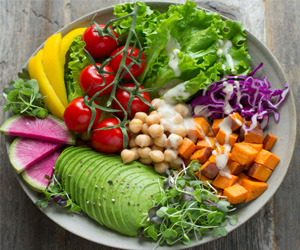 One of the most compelling reasons to incorporate meatless options into your diet is the potential for improved health. These options are often lower in saturated fats and cholesterol, making them heart-healthy choices. They are also typically rich in fiber, vitamins, and antioxidants, which can reduce the risk of chronic diseases, aid in weight management, and enhance overall well-being.
One of the most compelling reasons to incorporate meatless options into your diet is the potential for improved health. These options are often lower in saturated fats and cholesterol, making them heart-healthy choices. They are also typically rich in fiber, vitamins, and antioxidants, which can reduce the risk of chronic diseases, aid in weight management, and enhance overall well-being.
Environmental Sustainability
The impact of traditional meat production on the environment is substantial. From deforestation to greenhouse gas emissions, the meat industry has raised concerns about its contribution to climate change. Opting for meatless options significantly reduces your carbon footprint, conserves water resources, and helps protect natural habitats. By reducing the demand for animal agriculture, we can work toward a more sustainable and eco-friendly future.
Ethical Considerations
For many, choosing meatless options aligns with ethical values. Concerns about animal welfare and cruelty in the meat industry have led to the rise of vegetarian and vegan lifestyles.

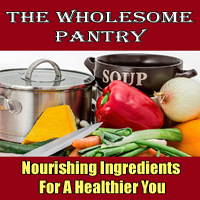
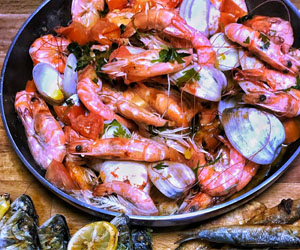 3. Slow Cooking: Slow cooking is a hallmark of Mediterranean cuisine. Stews and braised dishes are prepared with patience and love, allowing flavors to meld together harmoniously. Iconic dishes like Italian Osso Buco, Greek stifado, and Moroccan tagine exemplify the art of slow cooking.
3. Slow Cooking: Slow cooking is a hallmark of Mediterranean cuisine. Stews and braised dishes are prepared with patience and love, allowing flavors to meld together harmoniously. Iconic dishes like Italian Osso Buco, Greek stifado, and Moroccan tagine exemplify the art of slow cooking.
4. Seasoning With Fresh Herbs: Mediterranean cooking methods emphasize the use of fresh herbs like basil, oregano, thyme, and rosemary. These herbs not only infuse dishes with an aromatic depth but also contribute to the health benefits of the Mediterranean diet.
5. Baking And Gratin: Baking is prevalent in Mediterranean cooking, especially for making bread and pastries. Flatbreads like pita and focaccia are baked to perfection. Gratin dishes, like the famous Greek moussaka, are layered with ingredients and baked to create a golden, bubbling delight.
The Cornerstones Of Health And Wellness
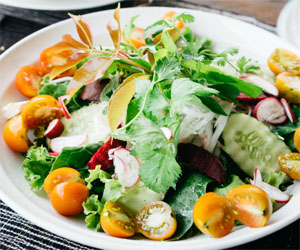 The Essence Of Nutrient Density: Nutrient-rich foods are characterized by their high nutrient density. This means they pack a significant amount of essential nutrients per calorie, giving you the most "bang for your buck" in terms of health. These foods are not empty calories but are abundant sources of vitamins, minerals, antioxidants, and other valuable compounds.
The Essence Of Nutrient Density: Nutrient-rich foods are characterized by their high nutrient density. This means they pack a significant amount of essential nutrients per calorie, giving you the most "bang for your buck" in terms of health. These foods are not empty calories but are abundant sources of vitamins, minerals, antioxidants, and other valuable compounds.
Variety Of Nutrient-Rich Foods: The world of nutrient-rich foods is diverse and versatile. It includes:
Fruits And Vegetables: Fruits and vegetables are teeming with vitamins, minerals, and dietary fiber. They offer a wide range of colors, flavors, and textures, making it easy to incorporate them into your daily meals.
A Recipe For Culinary Serenity
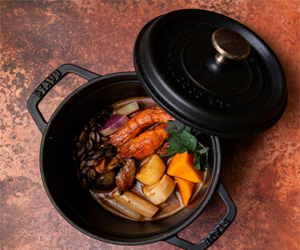 3. Healthy Eating: With the right approach, stress-free cooking can lead to healthier eating. Preparing fresh, nutritious meals doesn't have to be a time-consuming ordeal. Stress-free techniques can help streamline the process.
3. Healthy Eating: With the right approach, stress-free cooking can lead to healthier eating. Preparing fresh, nutritious meals doesn't have to be a time-consuming ordeal. Stress-free techniques can help streamline the process.
4. Enhanced Creativity: Stress-free cooking encourages creativity. When you're relaxed in the kitchen, you're more likely to experiment with new ingredients and flavors, resulting in delightful culinary discoveries.
Tips For Stress-Free Cooking
Here are some practical tips to help you embrace stress-free cooking:
1. Meal Planning: Take a few minutes to plan your meals for the week. This eliminates the daily "What's for dinner?" dilemma and reduces the likelihood of stressful, last-minute grocery store runs.
2. Prepped Ingredients: Save time by prepping ingredients in advance. Chop vegetables, measure out spices, and marinate proteins before you start cooking.
3. One-Pot Wonders: Explore one-pot recipes. These dishes not only simplify cooking but also minimize cleanup, saving you even more time and effort.
The Power Of Essential Vitamins
 Vitamin E (Tocopherol): As an antioxidant, vitamin E helps protect cells from damage and supports skin and eye health. It's found in nuts, seeds, and vegetable oils.
Vitamin E (Tocopherol): As an antioxidant, vitamin E helps protect cells from damage and supports skin and eye health. It's found in nuts, seeds, and vegetable oils.
Vitamin K (Phylloquinone): Vitamin K is essential for blood clotting and bone metabolism. Dark leafy greens and broccoli are rich sources.
The Importance Of Balanced Vitamin Intake
Balancing your intake of essential vitamins is critical to maintaining overall health and well-being. An unbalanced diet that lacks these essential nutrients can lead to vitamin deficiencies, which are associated with a variety of health issues.